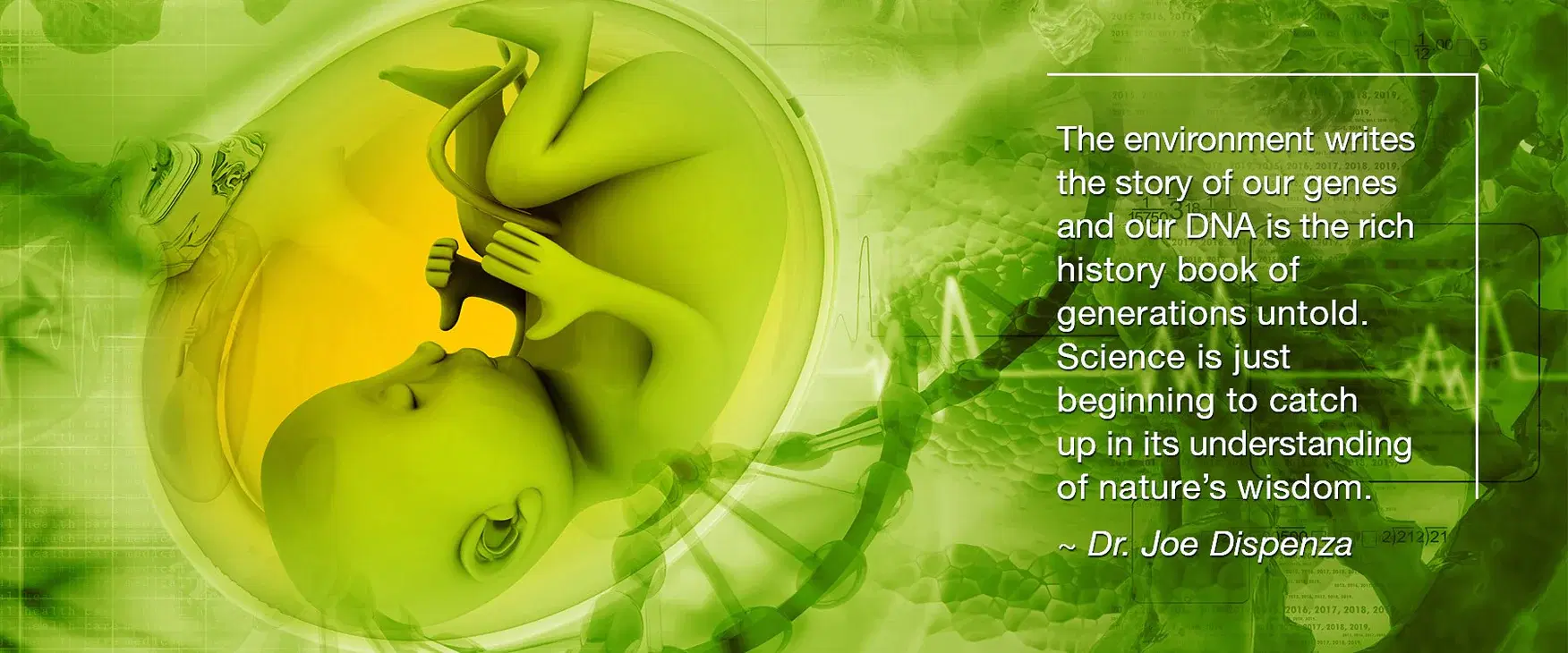The Wisdom of Nature
Dr Joe Dispenza | 01 May 2017
Last September, in a blog called The Nature of Nurture and the Nurture of Nature, I discussed a study in which Dr. Brian Dias from Emory University suggested that some biological information is inherited through chemical changes in our DNA. Called genomic imprinting, he inferred that memories of traumatic or stressful experiences could be passed on from our ancestors. For years it’s been known without a doubt that from generation to generation, the most important aspects of our genetic instruction are passed on through our DNA. In the last decade, however, through the science of epigenetics, it has also come to light that the environment plays an important role in genetic changes.
In a new study published in Science, researchers have discovered that environmental genetic changes can be passed down in an animal—get this—for 14 generations. Who knew a simple creature such as a roundworm (Caenorhabditis elegans) could possibly unlock one of humanity’s greatest mysteries?
Led by a team from the Spain’s European Molecular Biology Organization (EMBO), the scientists wanted to study how long the environment can leave a mark on genetic expression. They did this by using a genetically engineered nematode worms that carried a transgene (naturally transferrable genetic material) for a fluorescent protein. When activated, this gene made the worms glow under ultraviolet light. Next, they controlled the environment by reducing the temperature to 20° Celsius (68° F), all the while measuring the low activity of the transgene. At this temperature, they hardly glowed. When the worms were moved to a warmer climate of 25° C (77° F), however, suddenly the worms began to cast a glow, indicating the fluorescent gene had become much more active. Next came the revelatory moment—when the worms were moved back to cooler temperatures to see what would happen to the activity of the fluorescence gene, they continued to glow brightly, suggesting the worms were retaining an 'environmental memory' of the warmer climate.
The transgene continued to be highly active and expressed for the next seven generations, none of which had experienced the warmer temperatures, therefore, the baby worms inherited an epigenetic change through both eggs and sperm. Further experiments were conducted, keeping five generations of nematodes at 25° C (77° F). Their offspring were then subjected to colder temperatures, yet the worms continued to have higher transgene activity for an unprecedented 14 generations. Considering environmental changes in genetic expression only lasts a few generations, this is the longest generationally observable genetic change scientists have ever witnessed.
"We don't know exactly why this happens, but it might be a form of biological forward-planning," said Adam Klosin from EMBO and Pompeu Fabra University, Spain. Co-researcher Tanya Vavouri from the Josep Carreras Leukemia Research Institute in Spain, suggested that due to the worm’s short life span, they transmit past conditions to help their descendants predict future environmental conditions.
This particular type of worm is an ideal test subject because it only takes approximately 50 days to develop 14 generations. Nonetheless, it leaves clues about what’s possible in other animals, including humans. The problem with studying this in humans is that due to how long it takes generations to develop, it’s challenging to measure epigenetic inheritance. But as we saw from the work of Dr. Brian Dias in The Nature of Nurture and the Nurture of Nature blog, it appears powerful events in our lives can indeed affect the development of our children and perhaps even grandchildren. As an example, one study showed increased glucose intolerance in the children and grandchildren of women who survived the Dutch famine of 1944-45, and another study showed that descendants of Holocaust survivors have lower levels of the hormone cortisol, which helps your body bounce back after trauma.
Nature never wastes anything in her attempt to pass down information to living organisms. It is her way of better equipping future generations to face the same environmental conditions of previous generations. The environment writes the story of our genes, and our DNA is the rich history book of generations untold. Science is just beginning to catch up in its understanding of nature’s wisdom, so maybe it’s time to contribute to the story by demonstrating altruistic traits and behaviors. By loving one another and cooperating—instead of warring and living in constant fear—we just might outgrow Darwin’s “survival of the fittest” for “thriving with the wisest.”

Comments